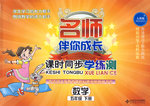题目内容
【题目】Michaela Clovis is a neighbor of mine. Last year, one of her classmates made fun of her hair. “She said it doesn’t look right and doesn’t match my skin,” said Michaela. Michaela is Irish, German, Native American, and African American. She has pale skin and reddish yellow hair, but she is not white.
Soon, a few classmates joined the teasing. Michaela said she felt “small and alone”. But she stopped the teasing without getting angry. Here is how she did it.
First, Michaela talked to her parents. Her mother, Donna, told Michaela’s teacher and also suggested that Michaela not face the teasing alone. Next, Donna told Michaela about the different people in her family, and their love for each other. She taught her that people of all races are beautiful.
“Everyone’s skin or hair color is beautiful and you have to believe that for yourself. You have to learn to be confident and comfortable in your own skin and hair. Forget what your classmates say, as it is just a period most kids go through picking on others because they are different ! Just don’t let it get to you and you will be okay! Be proud of who you are and love yourself for being a kind and generous human being,” Michaela’s mother said.
This made Michaela feel better. After that, Michaela was more confident. The next time she was teased, Michaela said, “I know that I’m proud of it”. She stuck to that answer until the teasing finally ended.
【1】Some classmates hurt Michaela by teasing her about her ________
A. hair B. skin C. neighbor D. family
【2】What did Michaela first do to deal with the teasing?
A. She told her parents
B. She asked the author for advice
C. She talked to her teacher
D. She believed in herself and kept silent
【3】The underlined part “picking on” in paragraph 4 probably means ________.
A. searching for B. laughing at
C. fighting with D. forgetting about
【4】What can we learn from this story?
A. Teasing is popular among classmates
B. Students should be taught to love each other
C. People who tease others should be punished
D. It’s possible to end a bad situation without anger
【答案】
【1】A
【2】A
【3】B
【4】D
【解析】
本文是一篇记叙文。有些同学通过取笑Michaela的头发伤害了她,她把这事告诉了妈妈,妈妈劝说她忘掉同学说的话,因为这只是大多数孩子在别人身上挑挑拣拣的时候。后来,她以她的头发而自豪。这个故事告诉我们:有可能在没有愤怒的情况下也能结束糟糕的局面。
【1】细节理解题。根据第一段第一句Michaela Clovis is a neighbor of mine. Last year, one of her classmates made fun of her hair.可知,有些同学通过取笑她的头发,伤害了Michaela。故选A。
【2】细节理解题。根据第三段第一句First, Michaela talked to her parents.可知,Michaela首先把这事告诉了父母。故选A。
【3】词义猜测题。根据第四段中Forget what your classmates say, as it is just a period most kids go through picking on others because they are different ! Just don’t let it get to you and you will be okay! 忘掉你的同学说的话吧,因为这只是大多数孩子在别人身上挑挑拣拣的时候,因为他们是不同的!只是不要让它影响你,你就会没事的!由此推知划线词的意思是“嘲笑”,故选B。
【4】推理判断题。根据最后一段This made Michaela feel better. After that, Michaela was more confident. The next time she was teased, Michaela said, “I know that I’m proud of it”. She stuck to that answer until the teasing finally ended.可知,通过本文得知“有可能在没有愤怒的情况下也能结束糟糕的局面”,故选D。
利用上下文提供的情景和线索,进行合乎逻辑的综合分析进而推测词义,是阅读过程中的一大关键最常见的就是利用上下文语境、常识和语法关系推断词义,尤其是抓住所需推断词汇前后的含义从而找出正确答案。本题第3小题,根据划线词前后内容根据第四段中Forget what your classmates say, as it is just a period most kids go through picking on others because they are different ! Just don’t let it get to you and you will be okay!由此推知划线词的意思是“嘲笑”。

 名师伴你成长课时同步学练测系列答案
名师伴你成长课时同步学练测系列答案